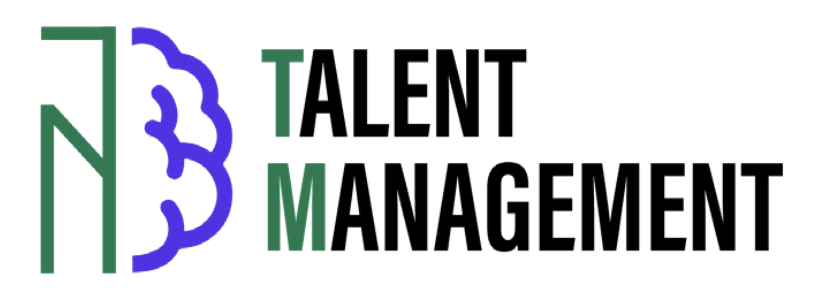At ESIC University we recognize the importance of creating a welcoming and inclusive environment for all our students, regardless of their origin, culture or nationality. Therefore, our fourth axis is to establish the ESIC University Global Campus, a physical and virtual space that promotes diversity, inclusion and innovation.
Our vision is to create a Global Campus that provides our students with the best possible experience during their stay at ESIC University. We understand that international students face unique challenges when studying abroad, such as language barriers, cultural differences and social isolation. Therefore, our Global Campus will provide a supportive and welcoming environment that fosters academic success, personal growth and intercultural exchange.

Our Global Campus will be a physical and virtual space that incorporates the latest technologies, green spaces and cultural centers. It will provide a variety of services and amenities that meet the needs and desires of our students.
A welcome desk and orientation programs to provide international students with a smooth transition to ESIC University and their new environment.
Comprehensive support services, including language training, academic advising and professional development, enable our international students to thrive academically and professionally.
Cultural exchange programs and social events that foster intercultural understanding and friendship among students from different backgrounds.
State-of-the-art facilities and technologies that support excellence in teaching, learning and research, such as virtual classrooms, collaborative spaces and research laboratories.
Access to a global network of academic and industrial partners that allow our students to broaden their horizons and create new opportunities for their careers and personal growth.
Our Global Campus will be a physical and virtual space that reflects our commitment to diversity, inclusion and innovation. We want a community of students, faculty and staff who embrace the richness and complexity of our global society, and work together to create a better future for all. We are committed to building a Global Campus that sets the standard for academic excellence, research innovation and global impact, and enables our students to become leaders in their fields and global citizens of the world.
We envision a dynamic and interconnected global community of scholars, where proactive and intense international academic relationships are at the heart of our higher education strategy. Our international strategy is based on four pillars: International Programs, International Students, International Faculty and Global Campus, which together create a comprehensive framework to promote academic excellence, research innovation and global impact.
- International Programs: Our international programs are designed to offer our students a truly global learning experience, where they can develop a deep understanding of diverse cultures, perspectives and ideas. We seek to expand our portfolio of international programs, which include study abroad, internships and collaborative research, enabling our students to acquire practical skills, interact with local communities and become global citizens. We are committed to offering innovative programs that meet the needs of the 21st century and address global challenges such as sustainability, health and technology.
- International Students: Our international students are a vital part of our community, bringing diverse backgrounds, experiences and perspectives that enrich our academic programs and campus life. We seek to attract and support a diverse and talented group of international students, providing them with a welcoming and inclusive environment that fosters academic success, personal growth and cultural exchange. We are committed to providing comprehensive support services, including language training, academic advising and professional development, that enable our international students to thrive and become leaders in their fields.
- International Faculty: Our international faculty are at the forefront of research and teaching, bringing cutting-edge knowledge and perspectives from around the world to our campus. We seek to attract and retain a diverse and talented group of international faculty by providing them with a supportive and stimulating environment that fosters excellence in research, innovation in teaching, and cross-cultural exchange. We are committed to providing opportunities for international collaboration and professional development, including joint research projects, exchange programs and mentoring initiatives.
- Global Campus: Our global campus is a physical and virtual space that connects our community with the world, allowing us to engage in meaningful academic and cultural exchanges. We seek to create a global campus that promotes innovation, sustainability and inclusion, incorporating state-of-the-art technology, green spaces and cultural centers. We are committed to establishing strategic partnerships with international institutions, governments and industry partners that enable us to address global challenges and create new opportunities for our students and faculty.
In short, our vision is to establish a global community of scholars that fosters academic excellence, research innovation and global impact. We are committed to promoting international academic relationships that transcend borders, foster mutual understanding and contribute to the advancement of knowledge and human development.
ESIC University provides students with comprehensive and practical training in the fields of business, marketing and communication, among others, with a strong emphasis on internationalization, and has established partnerships with universities around the world to provide students with global learning opportunities and cross-cultural exchange.
Through these partnerships, ESIC University offers a variety of international programs, including study abroad, language immersion and dual degree programs, which allow students to gain a broader perspective of the world and enhance their professional and personal development.
At ESIC University, we are committed to providing the most powerful learning and international experience for our students and academic partners. We recognize that our academic partners are critical players in our mission to foster academic excellence, research innovation and global impact. Therefore, our vision is to establish a collaborative network of international academic partners that will enable us to co-create knowledge, share best practices and foster cross-cultural exchange.
Our academic partners are at the forefront of research and teaching, bringing diverse perspectives and expertise that enrich our academic programs and campus life. We understand that they seek high quality academic programs, collaborative research opportunities, and a supportive and stimulating environment that fosters academic success and personal growth. Therefore, our vision is to offer academic partners a wide variety of programs and services that meet their needs and desires, including:
- High quality academic programs tailored to your interests and academic needs.
- Opportunities for joint research projects and collaborations with our faculty and students.
- Access to state-of-the-art facilities, resources and technologies that support excellence in teaching and research.
- Comprehensive support services, including visa assistance, housing and cultural integration programs, enabling them to thrive in a new academic and cultural environment.
- Networking opportunities with other academic partners, alumni and industry partners to expand their professional and academic networks.
We want to create a vibrant and inclusive community of scholars, where academic partners are valued and respected for their contributions to our academic mission. We are committed to fostering a culture of excellence, innovation and collaboration, where all members of our community are empowered to reach their full potential.
Our goal is to be a leading global institution of higher education, known for our commitment to academic excellence, research innovation and internationalization, and recognized as a valued partner by academic institutions, industry partners and governments around the world.
The university has agreements with more than 120 universities both nationally and internationally, agreements with more than 40 countries on four continents, and residential study travel programs with more than 500 students annually in international programs.
As a leading institution of higher education, ESIC University is committed to promoting academic excellence, research innovation and global impact. To achieve this mission, we recognize the importance of establishing strategic alliances and collaborations with other academic institutions, industry partners and government agencies around the world.
One of the most effective ways to establish and maintain these partnerships is by participating in international networking events, such as EAIE for Europe, APAIE for Asia-Pacific and NAFSA for the United States and Canada. These events bring together a wide range of academic and industry professionals from around the world, providing a unique opportunity for ESIC University to showcase our academic programs, research initiatives and campus culture.
By participating in these international networking events, ESIC University can:
- Expand our global reach: These events provide a platform for ESIC University to showcase our academic programs, research initiatives and campus culture to a global audience. This helps us attract high-quality students, faculty and industry partners from around the world.
- Build strategic alliances: Networking events such as EAIE, APAIE and NAFSA provide an opportunity for ESIC University to establish alliances with other academic institutions, industry partners and government agencies. These alliances can lead to joint research projects, student exchange programs and collaborations that promote academic excellence, research innovation and global impact.
- Learn from other institutions: by participating in international networking events, ESIC University can learn from other academic institutions and industry partners from around the world. This helps us stay abreast of the latest trends and best practices in higher education, and identify opportunities for innovation and growth.
- Enhance our reputation: by participating in international networking events, ESIC University can enhance our reputation as a leading higher education institution. This helps us attract high-quality students, faculty and industry partners, and build a strong brand that is recognized and respected around the world.
In conclusion, participation in international networking events such as EAIE, APAIE and NAFSA is a critical component of ESIC University's internationalization strategy. These events provide a unique opportunity for us to expand our global reach, build strategic alliances, learn from other institutions and enhance our reputation as a leading higher education institution.
We are one of the leading institutions in both education and business, recognized by companies and universities inside and outside our country.
At ESIC University, we establish agreements, relationships and affiliations with other institutions and universities to offer programs characterized by excellence. This allows us to act as a bridge between education and the business world, offering our students the security of being a proactive and leading school.
Institutional Agreements
Affiliations with private universities
Membership in institutions and associations
National AEEDE, adigital, Diversity Charter of Spain, Bequal Foundation, Marketing Association of Spain, Foro Inserta ONCE.
International Association of Asia-Pacific Business Schools; New Global Performance Challenges and Implications for Management Development; Consejo Latinoamericano de Escuelas de Administración; Business Transfer Programme; European Foundation for Management Development; Executive Education Consortium (UNICON); The Executive MBA Council; Principles of Responsible Management Education; Ministry of Education of Brazil; AACSB International (Association to Advance Collegiate Schools of Business); MBA CSEA
Founding members of AEEDES
In 1989, ESIC, together with the most renowned business schools in Spain, founded AEEDE (Asociación Española de Escuelas de Dirección de Empresas) to meet the demands for quality and service in executive education.
AEEDE establishes internationally accepted principles and standards of quality to guarantee a minimum level of education that allows students to perform their professional careers optimally. These principles and standards are articulated in the following aspects:
- Design and planning of programs offered by business schools.
- Composition (qualifications, dedication regime, etc.), selection and development of business school faculty (including instructional and research activities to be carried out).
- Processes developed by the institution, such as planning processes, student admission processes, research processes, student evaluation systems, graduate job search facilities, and relations between schools and the business community.
- Infrastructure and material resources necessary to carry out the school's activities.
ERASMUS+ PROJECTS
The Erasmus+ program is a European Commission initiative that promotes education, training, youth and sport in Europe. youth and sport in Europe. Since 1987, it has facilitated international exchanges and projects for millions of students and professionals. millions of students and professionals.
Main Objectives of Erasmus+
- Improve skills and competencies: Prepare participants for the labor market and active citizenship. and active citizenship.
- Promote educational quality: Promote cooperation and the exchange of best practices among institutions. practices among institutions.
- Promote inclusion and diversity: Facilitate access to educational opportunities for all. for all.
- Promote innovation and internationalization: Use new technologies and methodologies to improve education. methodologies to improve education.
- Strengthen European identity: Promote values of respect, tolerance and solidarity. solidarity.
Erasmus+ Priorities
- Inclusion and diversity: Ensuring access for all.
- Digital transformation: Integrating technology in education.
- Sustainability: Addressing environmental challenges.
- Democratic participation: Encourage the civic participation of young people.
ESIC University and the Erasmus Charter
The Erasmus Charter (ECHE) allows ESIC University to participate in Erasmus+, improving academic quality, strengthening internationalization, offering exchange opportunities and promoting inclusion and innovation. inclusion and innovation.

Title: DEBATE
Principal Investigator: Myriam Marti
Type: Erasmus + KA220
Duration: 09/01/2022 - 08/31/2024
Project website: https://debateproject.eu/
EU Erasmus+ website: https://erasmus-plus.ec.europa.eu/es/projects/search/details/2022-1-ES01-KA220-HED-000085513
The DEBATE project aims to promote the development of the skills and competencies that young university and competencies that young university students need to improve their critical critical thinking and employability, through the creation of collective learning environments. collective learning environments. In this sense, it is proposed as a methodology that fosters the ability to exercise critical judgment. Other objectives include improving the quality and efficiency of education and training, promoting active citizenship and enhancing creativity. active citizenship and enhancing creativity. Activities include transnational meetings transnational meetings between project partners, a training course for teachers on debate methodology on debate methodology, local laboratories to work on methodology, online debates between university students from different countries, local seminars to share the results of the project, a final conference in Spain and dissemination conference in Spain and dissemination activities of the results obtained.


Title: SOCIAL IMPACT OF HIGHER EDUCATION ON SUSTAINABLE DEVELOPMENT SUSTAINABLE DEVELOPMENT
Principal Investigator: Belén Lopez
Type: Erasmus + KA220
Duration: 09/01/2022 - 08/31/2024
Project website: https://hgsustainable.eu/
EU Erasmus+ website: https://erasmus-plus.ec.europa.eu/es/projects/search/details/2022-1-ES01-KA220-HED-000085910
The project "Social Impact of Higher Education on Sustainable Development sustainable development" project, HG Sustainable, was created to train students in a global and to assume responsible leadership. To this end, the objectives of the project are 1. To develop a model for students with impact on knowledge and Develop a model for students with impact on knowledge and business decisions. 2. To explore teaching methodologies to be developed in the classroom that contribute to sustainable development. 2. To explore classroom teaching methodologies that contribute to sustainable development. 3. Train teachers in this model to 3. Train professors in this model to increase the impact of Universities from inclusion, diversity and youth employment. diversity and youth employment. The partners are in four countries with ESIC University is the coordinating institution of the project.


Title: TALENT MANAGEMENT
Principal Investigator: Maria Guijarro
Type: Erasmus + KA 210 Small scale
Duration: 01-03-2022 - 29-02-2024
Project website: https://talentmanage.eu/
EU Erasmus+ website: https://erasmus-plus.ec.europa.eu/projects/search/details/2021-2-ES01-KA210-ADU-000048687
Today, companies are faced with a double challenge: on the one hand, the aging population and therefore the aging workforce, and on the other hand, a growing number of companies are aging of the population and therefore of the labor force; and on the other hand, the difficulty of finding and retaining highly the difficulty of finding and retaining highly specialized talent.
In view of this, the Talent Management project aims to promote the development of senior talent, especially those over 45 years of age, improving senior talent, especially people over 45 years of age, by improving the skills and competencies most in demand in today's companies. skills and competencies most in demand in today's companies. The project training materials will be developed, so that people over 45 years of age can acquire the necessary acquire the necessary competencies that will enable them to exploit their skills and competencies, thus and competencies, thus strengthening their position in the labor market.
In addition, complementary dissemination actions are expected to raise the awareness of companies of the need to companies of the need for their integration, bridging the age barrier, so that senior talent will continue to be an active part of the companies and not just a part of them. senior talent to remain an active part of the companies and not be expelled from the labor market. be expelled from the labor market.








